Retro Replay Review
Gameplay
Punchy delivers a charming blend of platforming and light puzzle elements as you guide Bobby the hunchback across sixteen theater-themed stages. Each level is packed with classic Punch & Judy hazards—crocodiles lurking beneath trapdoors, custard pies hurled from the wings, and rotten tomatoes raining down from the audience. Dodging these perils requires precise timing and quick reflexes, especially when navigating the moving platforms that span bottomless pits.
(HEY YOU!! We hope you enjoy! We try not to run ads. So basically, this is a very expensive hobby running this site. Please consider joining us for updates, forums, and more. Network w/ us to make some cash or friends while retro gaming, and you can win some free retro games for posting. Okay, carry on 👍)
The controls in Punchy are simple yet responsive. Bobby moves left and right with firm, predictable inputs, and his jump arc feels weighty enough to convey the struggle of his hunchbacked gait. Players will need to gauge the rhythm of platform shifts and pie tosses, developing a feel for when to dash forward or hang back. The occasional airborne sausage serves as a lighthearted bonus item—catching one grants extra score and a brief respite from the constant stage hazards.
Punchy’s level design maintains a steady ramp in difficulty. Early stages introduce single threats in relatively open spaces, while later acts combine multiple dangers in tighter quarters. As you progress, the game teases new obstacle patterns—crocodile mouths that snap open and shut, tumbling barrels, and surprise stagehands that alter the set mid-play. This escalating challenge keeps the experience fresh and rewards players who master timing and spatial awareness.
Graphics
For an early-’80s release, Punchy’s visuals are delightfully colorful and evocative of a bustling theater. The background art depicts velvet curtains, wooden stage floors, and elaborately painted set pieces that change from act to act. While sprite sizes are modest by modern standards, Bobby’s distinctive hunch and the exaggerated features of each hazard hitter—the menacing crocodile jaws, the squishy custard pies, and the comical tomato splats—translate clearly on screen.
Animation is kept to the essentials: Bobby’s hop, the slow swing of a croc’s jaw, and the arc of a flying sausage. Yet these modest frames are put to good use, creating a sense of life and motion on each stage. The smooth scrolling between scene segments is handled capably, and despite the original Spectrum hardware’s limitations, the game manages to avoid jarring flicker or excessive slowdown.
Perhaps the most surprising graphical feat comes from the speech samples in the Spectrum version. Hearing a nasally “Oh, oh!” or a gruff “Punchy!” during key moments lends an unexpected layer of personality. Though brief and grainy, these digital vocals were a rarity at the time and still delight players discovering them for the first time today.
Story
Punchy reimagines the classic Punch & Judy puppet show as an interactive adventure. You play as Bobby, a loyal stagehand whose mission is to rescue the fair Judy from the clutches of the mischievous Punch. The simple premise unfolds across sixteen acts, each presented as a new scene in the theater. It’s a playful homage rather than a deep narrative, embracing the slapstick humor and exaggerated characters of the original puppet play.
While there are no spoken cutscenes or lengthy dialogue exchanges, the game uses on-screen text and visual cues to advance the plot between acts. A triumphant fanfare signals your success in one scene, while Judy’s waving hand from behind a cage or curtain hints at the next rescue attempt. This minimalist storytelling places the emphasis squarely on gameplay, but the theatrical framing provides enough context to keep players engaged.
The comedic tone is consistent throughout. Seeing Bobby duck under swinging hammers or leap over custard pies evokes the slapstick spirit of vaudeville. Every hazard feels like a gag in a live performance, and the audience’s laughter is almost palpable—especially when a mistimed jump leaves Bobby splattered by a tomato or swallowed by a crocodile. It’s storytelling through playful stagecraft rather than words.
Overall Experience
Punchy stands out as a delightful relic of early platform gaming, combining zany humor with solid mechanics. Its stage-based progression encourages players to learn enemy patterns and perfect jumps, while the visual and audio flourishes—particularly the rare speech samples—add genuine charm. It’s easy to pick up for a quick session, yet challenging enough to reward repeated playthroughs.
Although modern players may find the graphics and sound primitive compared to contemporary titles, the game’s theatrical theme and comedic hazards remain entertaining. The simplicity of the map design and the lack of complex menus keep the focus on pure action: timing, movement, and narrowly avoiding cartoonish doom. For fans of retro gaming or anyone seeking a lighthearted platformer with character, Punchy offers a taste of classic arcade-style fun.
In the final curtain call, Punchy proves that creativity and theme can elevate straightforward gameplay. Whether you’re exploring its stages for the first time or revisiting an old favorite, the mix of vibrant stage settings, tight controls, and memorable speeches makes for an overall experience that’s as engaging as it is nostalgic. Don your theater tickets, brace for flying pies, and help Bobby bring Judy back to the spotlight.
 Retro Replay Retro Replay gaming reviews, news, emulation, geek stuff and more!
Retro Replay Retro Replay gaming reviews, news, emulation, geek stuff and more!
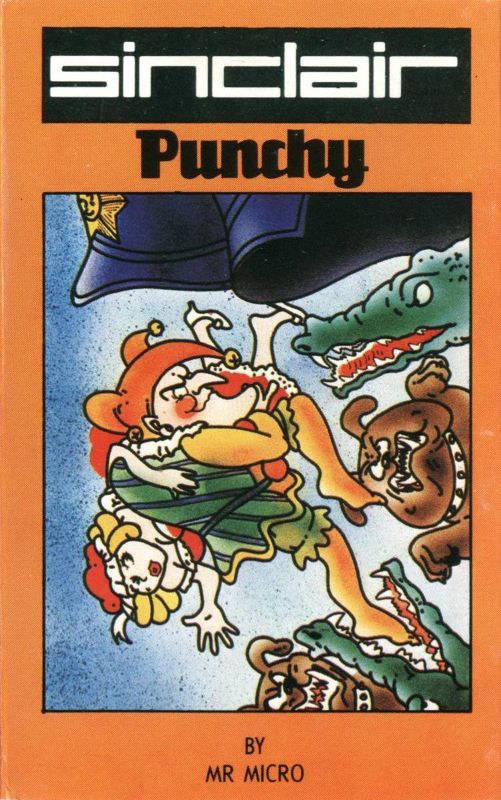
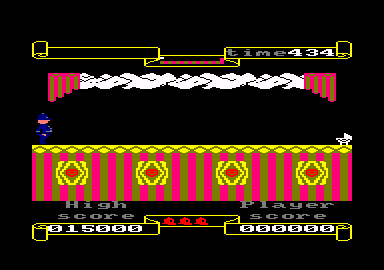
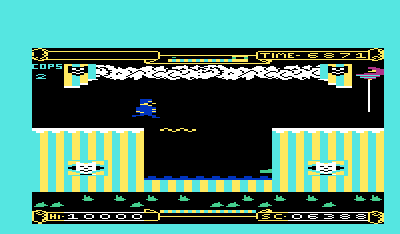
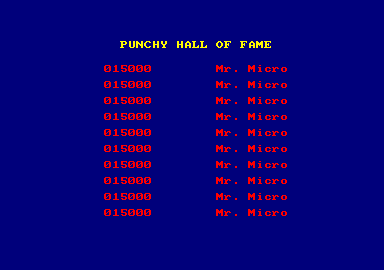
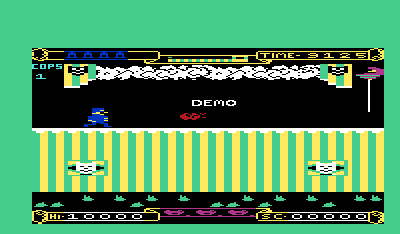
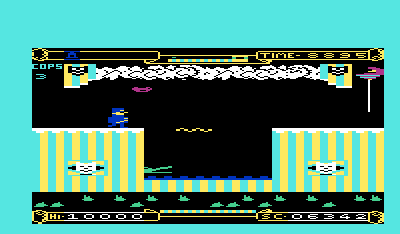
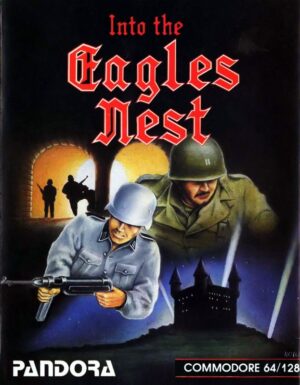


Reviews
There are no reviews yet.